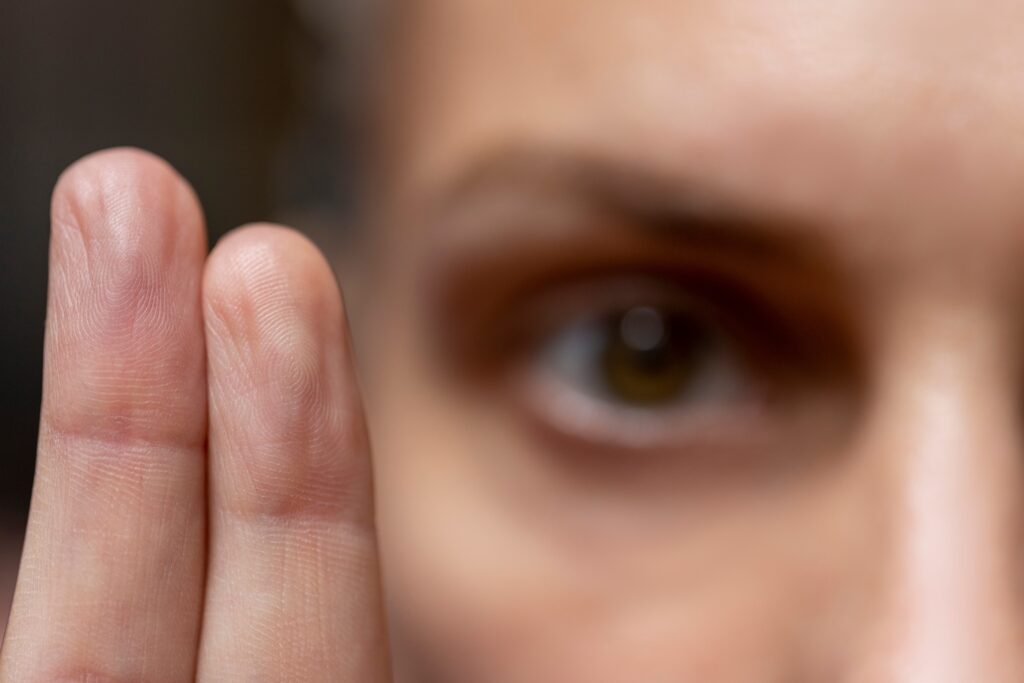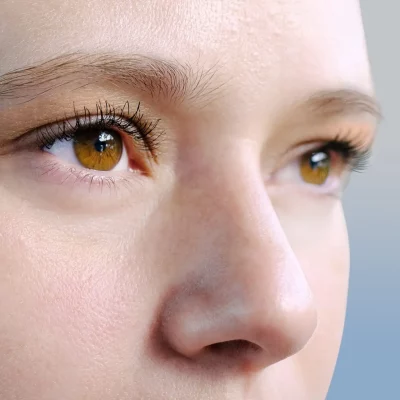Are there any dangers of online EMDR therapy? Eye movement desensitization and reprocessing (EMDR) therapy is a relatively new treatment that has grown in popularity over the past few years. You might also be asking: what is it? How does it work? And are there any dangers of online EMDR therapy?
In this blog post, we will explore these questions and more. We will look at how online EMDR therapy works and who can benefit from it. We will also dispel some common misconceptions about online EMDR therapy and talk about why people might think it is dangerous. Continue reading to find out if EMDR is something you should consider in your treatment plan.

What is EMDR therapy?
EMDR therapy is a type of treatment that helps people process and heal from past trauma. It was first developed in the 1980s by Dr. Francine Shapiro and has since been used to help millions of people around the world.
A trained therapist guides you through the EMDR process. Your therapist will ask you to think about the traumatic event or memory while moving your eyes back and forth or holding a vibrating device in each hand. It is important to note that you don’t have to have a full memory of the traumatic event for EMDR to work in treatment. A vague sense of memory or a body sensation will do for EMDR to work.
EMDR therapy is based on the belief that your brain is naturally able to heal from trauma, just like your body does. When you experience a traumatic event, it can be difficult for your brain to process what happened. It’s easy to feel stuck when you replay traumatic memories in your brain. EMDR therapy helps the brain process trauma so that your brain can put troublesome memories in the past. This process also helps relieve unwanted emotions associated with trauma.
EMDR is an effective treatment for PTSD. It can also be helpful for other mental health issues such as anxiety and depression.
What are the side effects of EMDR therapy?
Just like with any form of effective online therapy, there can be some side effects of EMDR therapy. These side effects are usually mild and temporary, and understanding them can help you to be prepared for what to expect.
Feeling overwhelmed or emotional.
As we mentioned before, online EMDR therapy can help to process stuck memories. This means you may feel overwhelmed or emotional as the memories return to you. Your therapist will be there to help you through this and will provide support.
Headaches or fatigue.
You may also experience headaches or fatigue after online EMDR therapy sessions. Again, these side effects are usually mild and will go away on their own. If they persist, be sure to talk to your therapist.
Physical reactions.
You may also experience physical reactions such as sweating, shaking, crying, muscle tension, or an increased heart rate. These are all normal reactions to trauma and will subside.
Having trouble sleeping.
It’s also common to have trouble sleeping after online EMDR therapy. This is because the brain is processing emotionally intense memories. Your therapist will likely give you tips on managing this side effect.
New memories or feelings.
Online EMDR therapy may also bring up new memories or feelings you were not expecting. Your therapist will help you process these new memories and emotions in a safe and supportive environment.
Are there any dangers of EMDR therapy?
Now that we’ve covered some potential side effects of online EMDR therapy let’s dispel some common misconceptions about this treatment.
Online EMDR therapy is dangerous.
One of the most common misconceptions about online EMDR therapy is that it is dangerous. This is because people mistakenly believe that the eye movement will cause them to relive the trauma. However, this is not the case. Eye movement is simply a way to help your brain process the trauma. Therefore, you will not relive the trauma during online EMDR therapy.
It will make you feel worse.
Another common misconception about online EMDR therapy is that it will make you feel worse before you feel better. This is also not true. Online EMDR therapy may be emotionally intense, yet it is not meant to make you feel worse. The goal of online EMDR therapy is to help you process the trauma and reduce the unwanted emotions associated with it.
Online EMDR is only for people with PTSD.
A third misconception is that online EMDR therapy is only for people with PTSD. This is also not true. Online EMDR therapy can be helpful for people with anxiety, depression, and other mental health concerns.
It will plant memories that aren’t true.
A final misconception about online EMDR therapy is that it will plant memories that aren’t true. This is not the case. Online EMDR therapy may help you remember things you had forgotten, but it will not plant false memories.

Who can benefit from online EMDR therapy?
There are many reasons why someone might want to try online EMDR therapy.
Minimal talking is required for it to be effective.
Online EMDR does not require much talking for it to be effective. There is no need to tell your story in detail or relive the trauma. This can be helpful for you if you’re having a hard time talking about your trauma.
It can help you process your past.
It can be difficult to let go of traumatic memories. Online EMDR therapy can also help you process your past and make peace with it. Online EMDR might be the right choice if you feel stuck replaying the same traumatic memories over and over.
Reduces negative thoughts and feelings.
Online EMDR therapy can help you identify, and challenge negative thoughts and feelings associated with the trauma. This can help you better understand yourself and your past to release the blame and shame you may feel around specific events in your life.
It can help you to cope with current stressors.
Online EMDR therapy can also help you to cope with current stressors. This can be helpful if you are struggling to manage your day-to-day emotions or are currently experiencing anxiety or depression.
You may see results quickly.
Compared to other treatment options, online EMDR therapy may produce results more quickly. This is because it directly targets the root of the problem. Although the goal is not to move through the sessions as quickly as possible, some people may find relief from their symptoms sooner than expected.

Tips for getting started with online EMDR therapy
If you’re thinking about starting online EMDR therapy, you should keep a few things in mind.
Contact Makin Wellness.
Contacting Makin Wellness is a great first step for starting online EMDR therapy. Our professional and experienced therapists can guide you through the process of online EMDR therapy.
Be prepared for online EMDR therapy.
Getting prepared means being honest with your therapist about your trauma and what you hope to gain from online therapy. It also means being willing to do the work required to process the trauma.
Online EMDR therapy is not right for everyone.
Online EMDR therapy is not right for everyone. If you’re not ready to address your trauma, online EMDR therapy may not be right for you. Your Makin Wellness therapist will work with you to assess whether online EMDR therapy is the right fit for your needs and circumstances. They will discuss any reservations or doubts you may have and address them collaboratively to ensure your comfort and readiness for the therapy process.
Additionally, your therapist will provide you with information and resources to support your decision-making process. Remember that therapy is a collaborative journey, and your therapist at Makin Wellness is there to support you every step of the way, whether you choose online EMDR therapy or another form of treatment that better suits your needs.
Contact us if you feel like your traumatic memories are dominating your life. Our team of qualified therapists is experienced and can help you process your trauma and heal from the past. Contact us today to schedule an appointment.









This Post Has 6 Comments
I’ve not heard how EMDR addresses the wounded heart of never being lived unconditionally in childhood. For me this is the real source of my CPTSD. What say you?
It seems to help my friend with exactly this. Rough childhood with single mother, no money, no time, and no other adults to really be there. She’s slowly making progress.
Hey Chuck.. If you were never loved unconditionally in childhood (as I was not also) what did happen? Emotional neglect? Abuse? Bullying? Control? Manipulation?
These are the things it will address. I have just found an EMDR therapist and I begin sessions next week. Give it a try hey? Worth a shot.
This is reasonable. EMDR has been nothing short of miraculous for me.I was able to obtain a feel for the treatment and gain confidence for the more difficult aspects. It’s like being reborn when you’re finally ready and able to face that agony, feel it entirely, and experience the release as it eventually becomes processed.
I had a therapist try EMDR on me. I stopped in August I believe of 2023. But I still have massive side effects. I have like a tornado of anxiety that will come through me every now and again. Dizziness and I’m shaky some mornings. I’ve been checked by the doctor for everything. Everything is good with me. I have anxiety now like crazy never had it before only when I was like maybe 19. Nothing that I couldn’t control. Now I’m just kind of left out in the balance hanging and I don’t know what to do to fix it I guess just time?
Yolanda, I’m so sorry for your experience during and after trying EDMR with your therapist. If you aren’t seeing a therapist to work through your anxiety symptoms, I would recommend you do. The sooner you are able to work through your experience the better. I hope you feel relief soon!